 In the recent Supreme Court of Canada decision of Trinity Western University v Law Society of Upper Canada, the Court was tasked with determining the scope of religious freedom protected by the Charter of Rights and Freedoms (“Charter”) within administrative decision-making.
In the recent Supreme Court of Canada decision of Trinity Western University v Law Society of Upper Canada, the Court was tasked with determining the scope of religious freedom protected by the Charter of Rights and Freedoms (“Charter”) within administrative decision-making.
Trinity Western University (“TWU”) is an evangelical Christian postsecondary institution that requires students and faculty to comply with the Community Covenant Agreement (“CCA”). The CCA prohibits students and faculty to engage in sexual relations outside of marriage and with the same sex. This covenant not only applies to TWU students on-compass but in their daily lives, as well.
TWU proposed to build a law school in Ontario and in British Columbia. In order to obtain the necessary accreditation in Ontario, TWU applied to the Law Society of Upper Canada (“LSUC”) (now the Law Society of Ontario). The Law Society of Upper Canada is the regulatory body that oversees the licencing process for lawyers, as well as, the requirements to maintain a licence to practice law in Ontario. The LSUC voted not to accredit TWU. TWU applied for judicial review on the grounds that the LSUC’s decision was a breach of their section 2(a) freedom protected by the Charter. Subject to reasonable limits, the Charter protects freedom conscience and freedom from state interference.
The LSUC denied TWU’s accreditation on the grounds that the creation of an evangelical Christian law school could create barriers for LGBTQ students and others from entering the legal profession. Such barriers, would harm the legal profession as a whole by limiting diversity and lowering public perceptions of lawyers. The LSUC decision did not interfere with evangelical Christian students from attending law school, but merely prevents an educational institution from providing a legal education to that group solely.
The Divisional Court held that the LSUC had given a fair, proportionate balance to the Charter rights engaged. LSUC has an institutional public interest mandate. Based on the current legal framework, LSUC’s decision was reasonably as it correctly balanced the freedom of religion and equality interests. The TWU appealed this decision to the Ontario Court of Appeal.
The Ontario Court of Appeal dismissed TWU’s appeal confirming that LSUC’s decision was “a proportionate balance between its statutory objectives and the limit on religious freedom.” TWU appealed once more to the Supreme Court of Canada.
The majority decision of the Supreme Court of Canada upheld the LSUC’s decision not to accredit TWU. The LSUC, as gatekeeper to the legal profession, has an important role in eliminating inequitable barriers that may discourage or limit applicants to law school. The Supreme Court held that the LSUC was entitled to find that the creation of the TWU law school could harm the legal profession by creating barriers for LGBTQ law students and for many others. In order to meet its legislative mandate, the LSUC is required to consider admission requirements that may impose inequitable barriers and undermine public confidence in its ability to regulate in the public interest.
Regardless of the Courts finding that the LSUC’s decision was reasonable, the Court continued and provided an analysis on the freedom of religion. To engage the freedom of religion the party claiming the right must show:
1. he or she has a sincere belief or practice that has a nexus with religion; and
2. that the impugned state conduct interferes, in a manner that is more than trivial or insubstantial, with his or her ability to act in accordance with that practice or belief.
The Court found that the LSUC’s decision was a limit on TWU’s religious freedom. However, the issue remained whether the limitation was “more than trivial.” The Court framed the issue as “whether the administrative decision-maker has furthered his or her statutory mandate in a manner that is proportionate to the resulting limitation on the Charter right.”
The Court found that the infringement is minor because a mandatory requirement is not an absolute requirement for studying law in a Christian environment, and attending a Christian law school, though may be preferred, is not necessary to practice law. Limits on religious freedom are unavoidable where institutions are trying to fulfill their statutory mandate in a multicultural and democratic society. As such, the LSUC’s decision not to accredit was a reasonable limit on protecting individual beliefs and practices. The consequence of this decision is that by preventing the accreditation of an evangelical Christian law school, the rights of students wanting to attend such an institution consistent with their beliefs will be limited as well.
In the dissenting opinion, the Honourable Supreme Court Justices Côté and Brown held that the decision not to accredit TWU was a “profound interference with the TWU community’s freedom of religion.” The Court found that the LSUC’s only role is to ensure that individual applications meet the proper requirements for accreditation into the profession. Therefore, the LSUC should not have considered the private educational institutions admission criteria in their decision-making process. Courts should not be involved in issues of public perception, and by upholding the LSUC’s decision the Charter has been used to force conformity and sacrifice difference of beliefs.
The Court vehemently disagreed with the majority’s belief that infringement on the freedom of religion arises out of the multicultural and democratic society. The dissent stated that the majority’s statement is “rooted in another equally fundamental misconception” that even where someone else’s freedom of religion is not infringed, as TWU is a private institution and cannot infringe Charter rights, the private actor’s religious freedom will be limited because of the potential impact on others. The TWU is not bound by the Charter and therefore, the LSUC and majority decision should not place the burden on TWU to uphold the freedom of religion in its dealings with students.
The majority’s decision in this case demonstrates the significant deference that Courts provide administrative decision-making bodies. Despite the finding that the LSUC’s decision limited religious freedom, the majority, pursuant to the Doré framework, was required to balance the statutory mandate of the administrative body with the right infringed to determine whether the limit is “more than trivial.” The majority’s decision held that the LSUC’s statutory mandate over the legal profession was broad, while the dissent felt the LSUC’s decision had overreached their authority. By framing LSUC’s statutory mandate over the entire profession as a whole, including barriers that may limit applicants to law school, the majority found the LSUC is entitled to deference.
Daniel & Partners LLP has extensive experience in judicial review proceedings. Please contact one of our experienced administrative law lawyers to see what we can do for you.
Blog post written by Associate, Nicholas Baxter.






